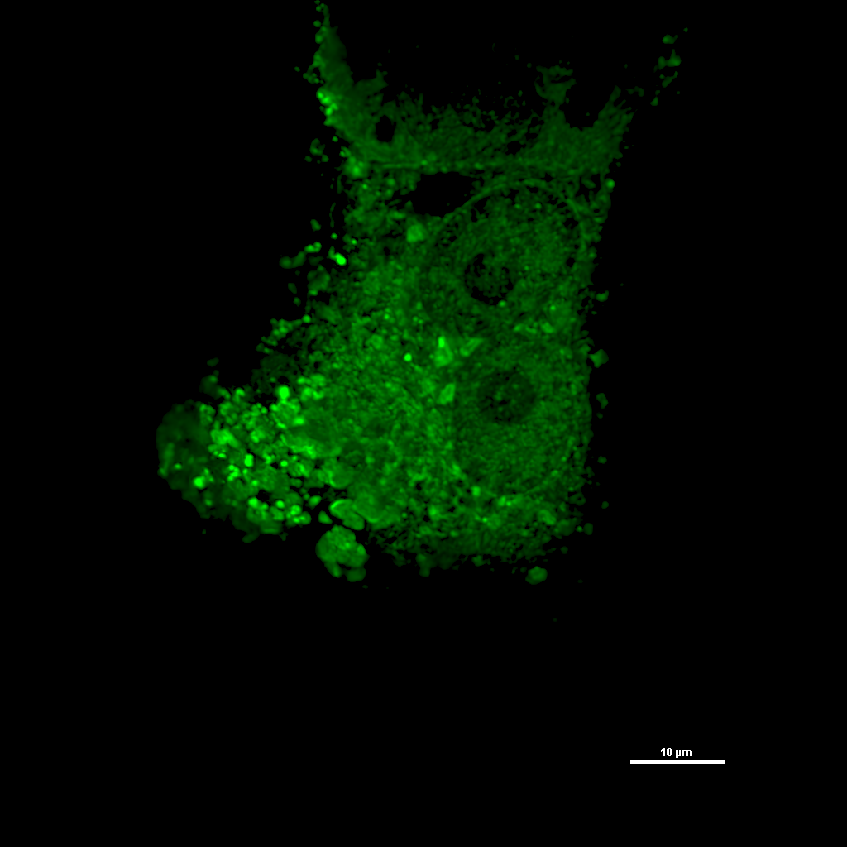FAQ on the Nipah virus
Disclaimer
The contents of this website are for general information purposes only and do not constitute medical advice, diagnosis or treatment. They are not a substitute for individual consultation with a qualified medical professional.
No guarantee is given for the accuracy, completeness or timeliness of the information provided. Use of the content is at your own risk. If you have any health questions or complaints, please always consult a doctor or other qualified professional.

1. What is Nipah virus infection?
Nipah virus infection is a rare but serious viral illness that affects both humans and animals. It is caused by the Nipah virus, which is a member of the Henipavirus family of viruses. Nipah virus is naturally found in fruit bats, but it can also be transmitted to other animals, such as pigs, and to humans. In humans it can reach a fatality rate up to 92%.
2. Where does the virus occur?
Nipah Virus Infection primarily occurs in parts of Asia, with a notable history of outbreaks in countries like India, Bangladesh, and Malaysia. In these regions, the virus has been known to circulate among fruit bats, which are natural reservoir hosts. Human cases often occur in areas where there is close contact between humans and infected animals, such as during the consumption of fruits or juices contaminated with bat saliva or urine (in the case of Nipah Bangladesh strain) or during contact between infected pigs and humans (in the case of Malaysia strain). Nipah virus outbreaks take place almost yearly since 1999, thus, vigilance and preparedness for potential outbreaks are essential in regions where the virus has been previously reported.
3. How is Nipah virus infection transmitted?
Nipah virus infection can be transmitted to humans in a number of ways, including:
- Direct contact with the bodily fluids of infected animals, such as saliva, urine, or feces.
- Eating raw or undercooked pork or other animal products that are contaminated with the virus.
- Drinking raw date palm sap or other tree sap that is contaminated with bat droppings.
- Person-to-person contact with an infected person, especially through respiratory droplets produced when the person coughs or sneezes.
4. What are the symptoms of Nipah virus infection?
The symptoms of Nipah virus infection can vary depending on the severity of the illness. In some cases, people may only experience mild symptoms, such as cough, fever, headache, and muscle aches (myalgia). In other cases, people may develop more severe symptoms, such as encephalitis (inflammation of the brain), seizures, and coma which may lead to death.
5. How is Nipah virus diagnosed?
There are several tests available to diagnose Nipah virus infection. While early diagnosis of Nipah virus can be challenging due to the non-specific early symptoms of Nipah virus disease (similar to Japanese encephalitis', Measles' or Dengue encephalitis' symptoms amongst others), it is common to conduct real time polymerase chain reaction (RT-PCR) from patient's blood, but other body samples can be tested such as throat and nasal swabs, urine or cerebrospinal fluid. RT-PCR will allow the detection of Nipah viral RNA. Later stages of de disease and also after recovery, it is possible to quantify the presence of Nipah virus-specific antibodies using an enzyme-linked immunosorbent assay (ELISA). Early diagnosis is vital for proper patient care and implementing infection control measures.
6. Is there a treatment for Nipah virus infection?
There is no specific treatment for Nipah virus infection. Treatment is primarily supportive care and focuses on managing the symptoms of the illness. In some cases, antiviral medications may be used, but their effectiveness is not yet well-established.
7. Is there a vaccine for Nipah virus infection?
There is currently no licensed vaccine for Nipah virus infection. However, a number of vaccines are under development.
8. How can I protect myself from Nipah virus infection?
There are a number of things you can do to protect yourself from Nipah virus infection, including:
- Avoid contact with bats and other wild animals.
- Cook pork and other animal products thoroughly before eating them.
- Avoid drinking raw palm sap.
- Wash your hands frequently with soap and water.
- Avoid close contact with people who are sick with Nipah virus infection.
More information
- World Health Organization (WHO)
- Centers for Disease Control and Prevention (CDC)
Contact
- Dr Anna Hein
- Public Relations
- phone: +49 40 285380-269
- email: presse@bnitm.de
- Julia Rauner
- Public Relations
- phone: +49 40 285380-264
- email: presse@bnitm.de
- The Laboratory diagnostics|Consultation for physicians
- Advice on the diagnostic procedure
- phone: +49 40 285380-211
- fax: +49 40 285380-252
- email: labordiagnostik@bnitm.de







